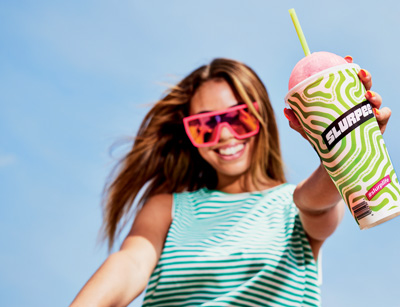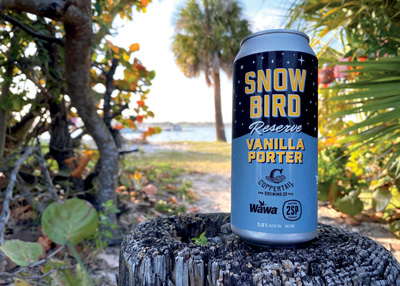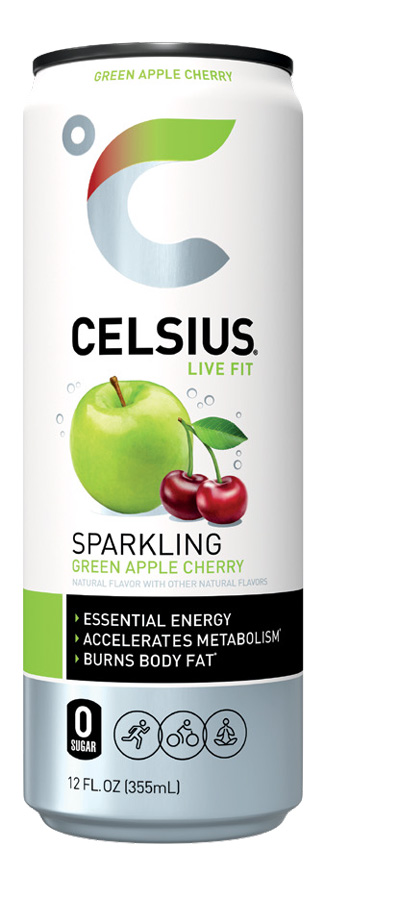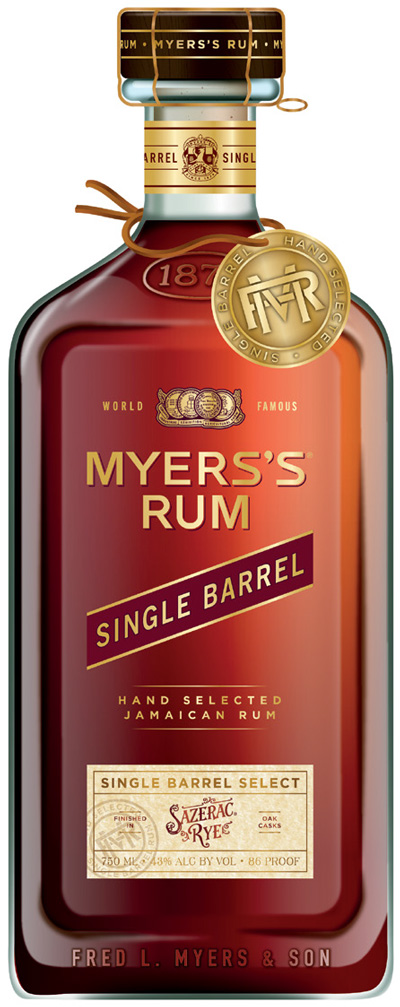Innovation, customization and exclusivity are helping to drive cold box and fountain beverage sales in convenience stores today. These efforts to push brands to stand out among an endless sea of beverage options are only expected to continue, with savvy c-stores and their thirsty customers reaping the benefits.
In recent years, convenience retailers have teamed up with beverage vendors on exclusive drinks—often for a limited time—in moves designed to keep category offerings fresh and to entice both existing and new customers. The Coca-Cola Company and PepsiCo have both been active in collaborating with c-store chains on exclusive line extensions of popular packaged beverages. Within the beer category, craft brewers have teamed up with local c-stores on unique beverages.
7-Eleven has leveraged popular beverage brands across segments. The Texas-based retailer and Celsius, maker of caffeinated functional drinks, teamed up recently on a Green Apple Cherry flavor that was available exclusively at 7-Eleven, Speedway and Stripes stores.
 7-Eleven’s Slurpee drink has been a vehicle for several LTO collaborations.
7-Eleven’s Slurpee drink has been a vehicle for several LTO collaborations.
“This classic blend of crisp green apple and sweet cherry is perfect for caffeine aficionados, night owls, athletes and gym-goers,” said the retailer in announcing the product’s launch earlier this year. To promote its arrival, samples were offered at participating 7-Eleven locations throughout the United States, while twofers for $4.50 were promoted at each of the three c-store brands.
Our customers are always looking to us to deliver unique and innovative products.
In a partnership with Coca-Cola’s Vitaminwater earlier this year, 7-Eleven unveiled Vitaminwater Zero Sugar LOOK Slurpee, a blend of blueberry and hibiscus flavors, for a limited time. “Our customers are always looking to us to deliver unique and innovative products, and we love blending our beloved proprietary beverages with popular national brands,” remarked Ben Boulden, 7-Eleven’s director of proprietary beverages. The companies previously teamed up on a “What the Fanta” mystery flavor and an acai-blueberry-pomegranate-flavored Vitaminwater XXX Slurpee.
Casey’s and Mountain Dew, meanwhile, partnered last year on MTN DEW Overdrive, a “long-term offering” featuring a citrus punch taste with hints of mango, raspberry and lime flavors, available in 20-ounce bottles and at the fountain. Mountain Dew also partnered with Circle K in 2022 on MTN DEW Purple Thunder, which combines blackberry and plum flavors, and is available in 20-ounce bottles and at the fountain. Earlier this year, the MTN DEW Purple Thunder frozen dispensed Froster flavor was added.
For a unique packaging collaboration, Maverik and Coca-Cola teamed up this year on a limited-edition Coke can that celebrates the retailer’s “adventurous spirit” while promoting its Happy Camper sweepstakes. Launched in 12 Western states in March, the custom can is available while supplies last via a partnership between Maverik and Utah’s Swire Coca-Cola, which produces, sells and distributes Coca-Cola products in the area.
Flurry of Collaborations
Beyond packaged beverages, there have been a flurry of collaborations in the beer category in recent years, with craft brewers partnering with local c-stores on proprietary offerings.
Wisconsin-based Kwik Trip, for example, has teamed up several times with Karben4 Brewing on a series of brews, such as the doughnut-and-coffee-inspired Glazer Bean stout, Hot Spot hazy IPA and Urge Tracker, a peanut butter chocolate stout. The collaborative beers “drive traffic to the stores and awareness to our beer category,” Kim Jenks, Kwik Trip category manager, told NACS Magazine in 2021. Similarly, Oklahoma’s OnCue has partnered with several local breweries as part of its Collaboration Series of beers, including Iron Monk, Anthem and Stonecloud brewing companies.
Pennsylvania-based c-store retailers have been particularly active in collaborative beer releases. Wawa has partnered with 2SP Brewing Co. several times, including brews featuring the chain’s own coffee roast. Last year, Wawa paired up with New Jersey’s Cape May Brewing on Shore Tea, a hard tea beverage made with the chain’s peach iced tea. Rutter’s, meanwhile, has teamed up with Lancaster Brewing on the limited-edition Rutter’s chocolate milk stout, and Sheetz has collaborated with the Evil Genius and Neshaminy Creek breweries.
 Wawa and 2SP brewing partnered on several brews exclusive to Wawa stores.
Wawa and 2SP brewing partnered on several brews exclusive to Wawa stores.
Most recently, c-stores are leaning into the expanding liquor category for exclusive drink offerings. Casey’s has teamed up with Buffalo Trace Distillery, a division of Sazerac, on single-barrel bourbon offerings since 2021. According to Eric Long, director of packaged beverages at the retailer, customer response has been strong. In fact, because of its success, the two companies recently launched a single-barrel program for Myers’s rum, he revealed, with bottles released in 90 stores in Illinois. “We look forward to continuing to collaborate with a great partner like Sazerac to bring these unique offerings to Casey’s guests,” Long said.
New Drink Experiences
The proprietary drinks are a response from c-stores and beverage marketers to consumer demand for new drink experiences. Angelica Uribe, national account executive at The Coca-Cola Company, said the company partnered with 7-Eleven on the most recent Slurpee expression “to deliver the unique and innovative products consumers are looking for.”
New products and flavors are pivotal in attracting new customers, and when offerings are exclusive to a concept, fear of missing out helps drive consumers to the store. “Intriguing new products and flavors drive trial and recruit new drinkers,” remarked Uribe, so seasonal LTOs are an important opportunity for c-stores to bring customers—especially those in Gen Z and Gen Alpha—into the store.
When it comes to frozen dispensed beverages, 71% of consumers are motivated to visit a c-store based on unique items or offerings, Uribe said. “By partnering with established brands that consumers recognize and trust, c-stores can capture the loyal fan base while also delivering on the demand for innovation and adventure.”
Beverage collaborations haven’t been limited to supplier/retailer mashups. Drinks marketers themselves have teamed up on creative offerings, whether it’s collaborative brews from craft brewers or partnerships between alcoholic beverage marketers and soft drink and juice companies that have resulted in the emergence of non-alcoholic brands into the licensed beverage space. This category blurring has included partnerships between Boston Beer and Beam Suntory (Truly vodka), Boston Beer and PepsiCo (Hard MTN DEW), and Brown-Forman and Coca-Cola (Jack & Coke).
Heather Boyd, managing director, U.S. RTDs at Beam Suntory, told NACS Magazine last year that consumers now shop “agnostically across categories, looking for brands they know and love. This presents a key opportunity to extend beloved brands into new expressions, formats and outlets, and drive additional brand affinity and customer loyalty.”
Infinite Innovation
All signs point to a continuation of the surge of unique and exclusive beverages. Coca-Cola executives, for example, have said they remain interested in emerging alcoholic beverage segments, such as RTD cocktails. Uribe added that exclusive offerings in frozen dispensed beverages also have a bright future. “C-store operators should lean into the customization and premiumization trends to allow consumers to make drinks as unique as they are,” she advised.
 Celsius’ Green Apple Cherry flavor was available exclusively at 7-Eleven, Speedway and Stripes stores.
Celsius’ Green Apple Cherry flavor was available exclusively at 7-Eleven, Speedway and Stripes stores.
 Casey’s and Sazerac launched a single-barrel program for Myer’s rum.
Casey’s and Sazerac launched a single-barrel program for Myer’s rum.
Boyd agreed, saying, “The collaboration trend is here to stay, and it will result in continued innovation.” C-stores can only stand to benefit, she remarked. “Ultimately, this presents opportunity for c-stores to offer additional, consumer-centric products and leverage strong brand affinity to drive purchases of newer products.”